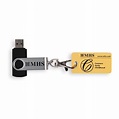The Conners Early Childhood (Conners EC™) assesses behaviour for preschool-aged children 2 to 6. It is designed to assess the concerns of parents and teachers/childcare providers about preschool-aged children. Minimum requirements: Pentium III processor, Microsoft Windows 10, 8, 7, Vista or XP. 512 MB of memory, 500 MB of disk space, and a USB port.
The Conners Early Childhood™ (Conners EC™) assessment is the result of five years of intensive product research and development. Child psychologists, clinicians, pediatricians, and child psychiatrists can rely on the Conners EC to help identify when early intervention is required for various childhood problems.
The Conners EC™ is an innovative psychological instrument designed to assess the concerns of parents, teachers, and childcare providers about preschool-aged children. This instrument aids in the early identification of behavioral, social, and emotional problems. The Conners EC also assists in measuring whether or not a child is appropriately meeting major developmental milestones (Adaptive Skills, Communication, Motor Skills, Play, and Pre-Academic/Cognitive).
This tool provides information that may be useful to consider when determining whether or not a child is eligible for early intervention or special education and related services under current U.S. federal statutes, such as the Individuals with Disabilities Education Improvement Act 2004 (IDEA, 2004).
Key Features:
Easy comparison of scores across raters, thanks to a multi-informant assessment format
Full-length, Short, Behavior, Developmental Milestones, and Global Index Forms
Spanish versions
Validity ScalesV
Clear and direct links to the IDEA 2004
Excellent reliability and validity
Easy administration, scoring, and results interpretation
Reports
Assessment Reports provide detailed information about scores from a single administration, presented both numerically and graphically. An individual's scores are compared to those in the normative sample and elevations at the scale and subscale level are indicated.
Progress Reports compare the results of two to four administrations for the same individual to measure changes over time. These reports are ideal to use when monitoring treatment and intervention effectiveness.
Comparative Reports combine the results of different raters to provide an overview of an individual's scores from a multi-rater perspective. This highlights potentially important inter-rater differences in scores.
How To Use
The Conners EC instrument includes multiple components that can all be administered using online and paper-and-pencil formats. All forms can be scored online or using scoring software. The Conners Early Childhood Global Index (Conners EC GI) can be administered and scored with the QuikScore™ Form. It can also be administered and scored online and scored using scoring software.
Reliability and Validity
Reliability
High levels of internal consistency were found for the majority of the scales (ranging from .64 to .96). Test-retest correlations were calculated for scores over a 2- to 4-week interval. Overall, test-retest values for the Conners EC scales indicate excellent temporal stability (ranging from .73 to 1.00).
Validity
Discriminative validity ensures that the scales discriminate between relevant groups. Overall, results suggest that scores on the Conners EC can accurately distinguish not only general population groups from clinical groups, but can also differentiate between various clinical groups.
Convergent/divergent validity determines if scores correlate in a meaningful and theoretically expected way with scores from other instruments designed to assess similar constructs and do not correlate meaningfully with scores from other measures designed to measure different constructs. Overall, the pattern of correlations was as expected with criterion measures (including the BASC-2, BRIEF-P, CBCL, and Vineland II), providing strong evidence of the convergent and divergent validity of the Conners EC forms.
Normative Data
The Conners EC provides you with a contemporary normative data sample that reflects a diverse population. The large normative sample is representative of the general U.S. population in terms of ethnicity/race, gender, and age.
The normative sample is also diverse in terms of socioeconomic status and geographic region. The data collected during the normative study allowed for a thorough evaluation of the psychometric properties of all versions of the assessment tool.
The normative data sample included 800 parent and 800 teacher/childcare provider raters. Separate norms are provided for male and female children at 6-month age intervals. Combined gender norms are also available.


